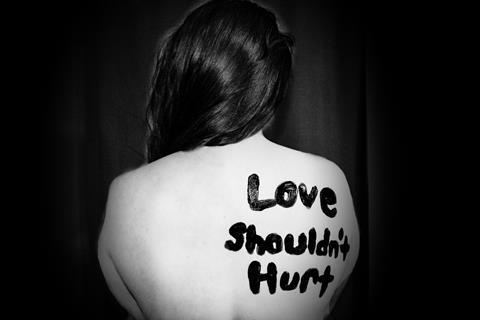Bekah Legg, from survivors of domestic abuse charity Restored, explains the new measures put in place by the government to tackle intimate partner violence.

The government recently announced some significant new measures for tackling domestic abuse and dealing with perpetrators. Under proposed laws, police will be told to treat violence against women and girls as a national threat, and it will be put on a priority par with terrorism. I was asked on the radio this week if that’s proportionate. It is.
Terrorism is exactly what it says: it fills us with fear. Thoughts of being caught on a train with a suicide bomber or any other number of possibilities can haunt our nightmares. But the reality is, acts of terror in the UK are rare.
By contrast, it’s estimated that last year, 2.4 million people were subjected to domestic abuse in England and Wales alone. That is not rare, and those people are living in fear every day. Their nightmares are not just haunted, they are real. In fact, some scholars refer to domestic abuse as "intimate terrorism". People die every week because of it; two women a week on average. Twelve men every year.
Domestic abuse IS a national threat.
It is to be celebrated that something that used to be referred to as "just a domestic", is being taken seriously. These new measures will have a significant impact on the monitoring of dangerous offenders. Starting immediately, anyone jailed for 12 months or more for coercive control, including suspended sentences, will be placed on the violent and sex offender register. This means they will have to tell police their name, any aliases and any addresses that they stay at for more than a week. They will also have to inform police about any travel overseas, bank details and whether they stay in a household with a child for more than 12 hours.
Some scholars refer to domestic abuse as "intimate terrorism".
Beyond these measures, more perpetrators will be required to attend behavioural change programmes, funding will be released to extend the Ask for Ani safe space initiative, and there will be £8.4 million for specialist victim support centres. Rishi Sunak said he hopes this will bring down the rates of domestic abuse. While I love his intention, I want to say that it will take more than this to do that. I genuinely celebrate what is being proposed, but tough sentencing isn’t enough to dissuade perpetrators of domestic abuse. Being able to "get away with it" isn’t the problem; it’s much deeper than that.
Jesus told his disciples that they would be known by the way they loved one another (John 13:34). At another time he said that people are known by their fruit (Matt 7:16). Good fruit grows on good trees. Bad fruit or bad behaviour grows on bad trees, trees that have grown in poor soil. The behaviours that we see in domestic abuse are exactly the same. Violence, control, manipulation, deception, cruelty, and endless criticism are bad fruits growing on a bad tree; a tree of entitlement, self-interest and insecurity. That tree is growing in soil that holds some seriously poor values. Values that say having power and control is the ultimate goal in life, that some people are worth more than others, and that you have to look after number one - you. If a tree has been fed that message, no wonder it bears such poisonous fruit.
Violence, control, manipulation, deception, cruelty, and endless criticism are bad fruits growing on a bad tree; a tree of entitlement, self-interest and insecurity.
The key to ending domestic abuse, or any abuse for that matter, is improving the soil. It’s teaching a different set of values, Godly values. And it has to start young. As parents, teachers and youth workers, we need to take seriously the ground in which our children are growing. What values are we embedding in them? How can we combat the toxic messaging that they are hearing in music, film and social media every minute that they are awake?
Our children are bombarded with messaging that sexualises girls, tells them they can have and be anything they want, and teaches violence as a way of getting it. We need a cultural revolution in the way of love. We need to instil values of equality, respect for one another, and loving others as we love ourselves and community, not individualism. It’s not easy. It can seem overwhelming when we consider how loud and strong the other messaging is, but it is possible.
At Restored, we not only support Christian women who have been subjected to domestic abuse, but we are passionate about equipping the Church to be God’s gardeners by taking a stand against domestic abuse and pouring goodness into the soil all around them. One way we are doing that is by developing a parenting resource to help parents navigate these difficult conversations with their children so that we can raise a new generation that bears the most beautiful and wholesome fruit. A generation who value one another, who respect one another and who fundamentally love one another in the way that Jesus taught. Perhaps then we can see an end to violence against women and a world without domestic abuse.
Find out more about the Restored Parenting Resource here.



































No comments yet